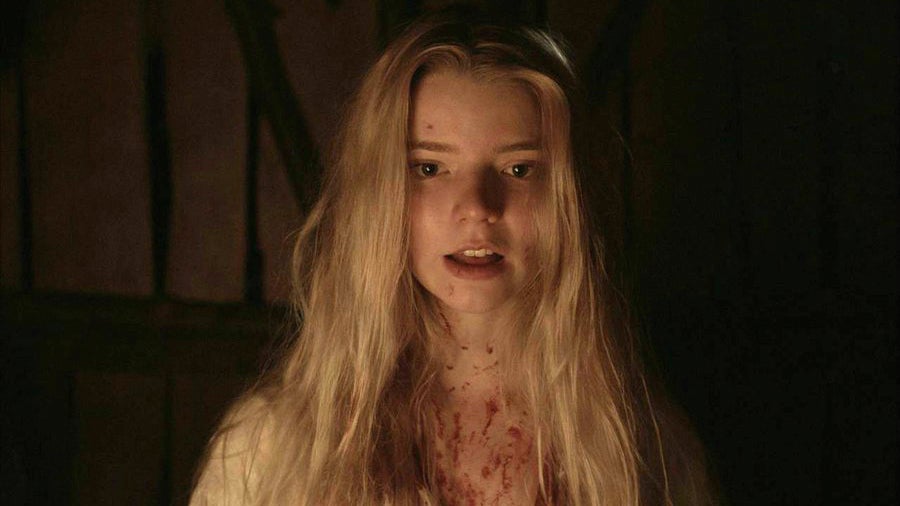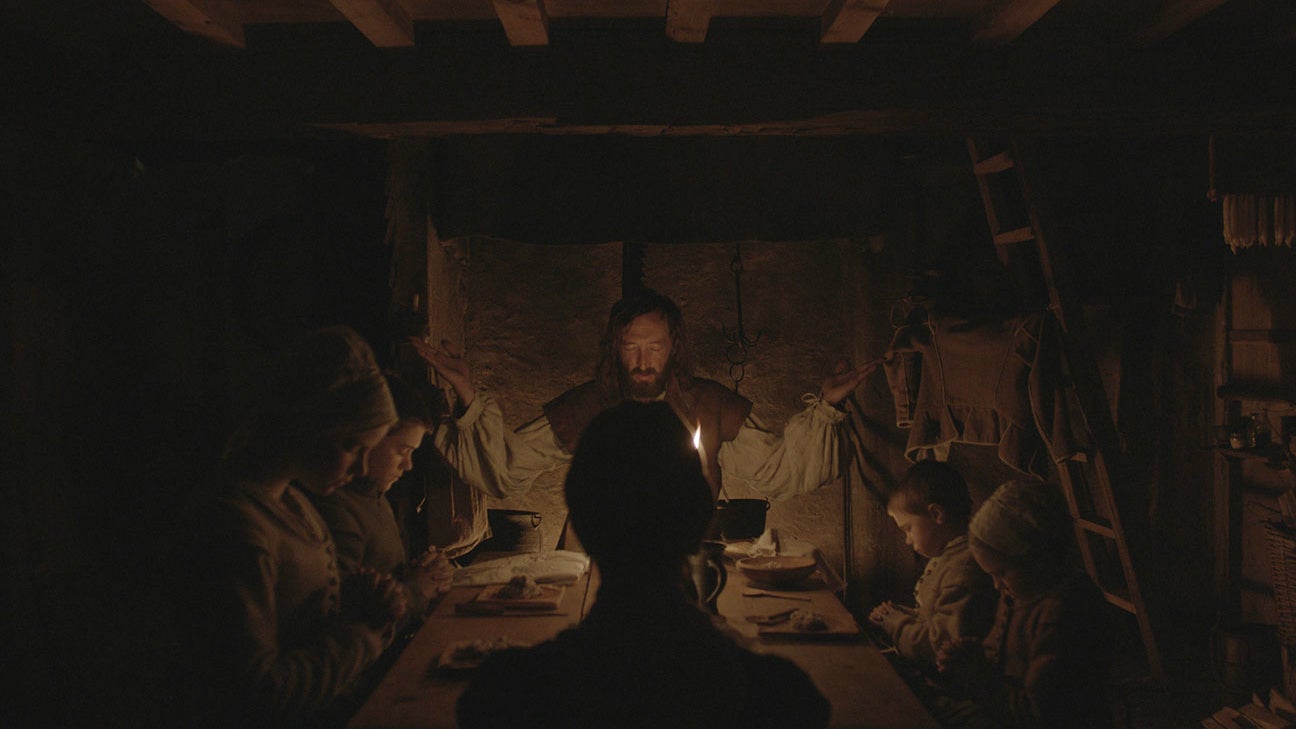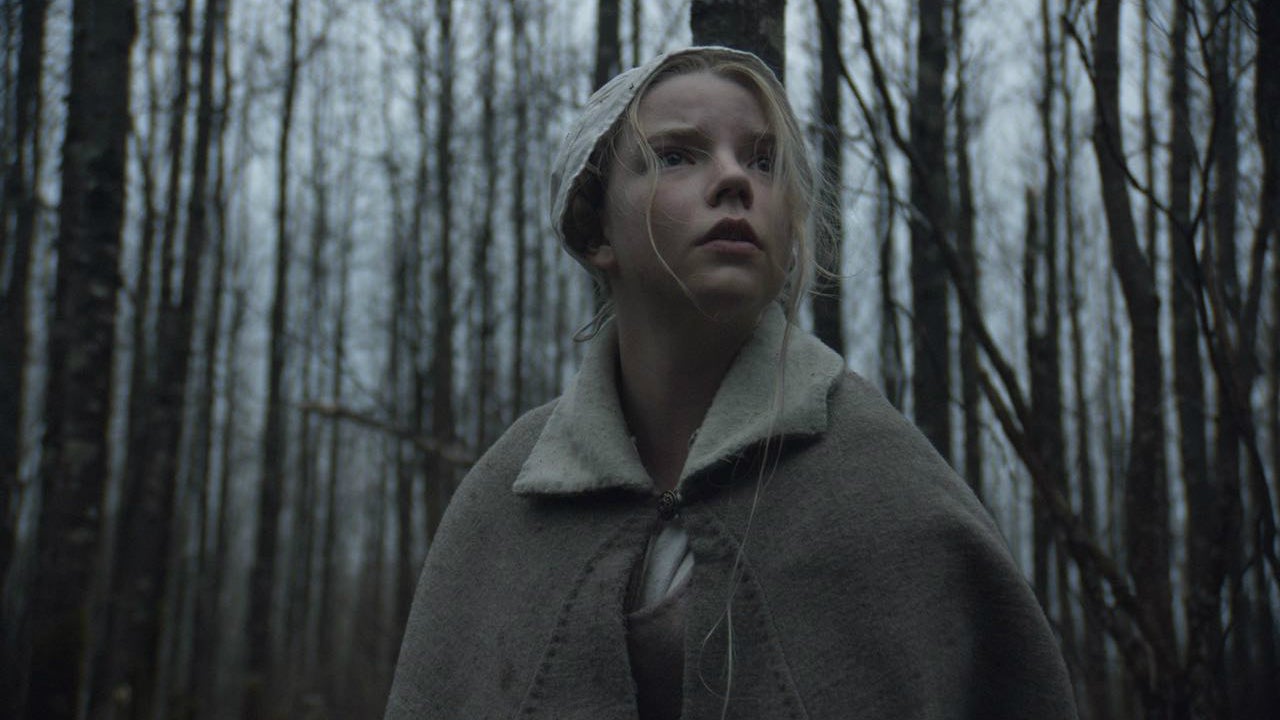The Witch: how 2016's breakout horror strips the genre back to its roots
You can thank the Puritan faith for the horror genre's long-standing obsession with the feminine mystique

When death lives on your doorstep, horror becomes ordinary.
Robert Eggers' breakout hit The Witch looks back to a period when reality and the supernatural strode hand-in-hand. Set in the 1630s, it focuses on a strict Puritan family settled in rural New England; cast out from the main hub of society due to a disagreement of beliefs in the "pure and faithful dispensation of the gospels."
Following the disappearance of the family's youngest child, the most innocent of infants, all eyes turn to the youngest daughter of the household (Anya Taylor-Joy) and to the whisperings of an evil presence in the shadows of the surrounding woodland.
To live on the borders of civilisation, and at the will of nature, was the most dangerous, frightening, and alienating of tasks. Every harsh winter, or every failed crop, seemed to bring death into the air; control over their own survival seemed to have been ripped so brutally from their own hands, that even the slightest of beliefs which could bring some sense and regularity into their own lives descended like a feverish grip.
In this environment, the witch thrived; born out of desperate fear and crushing ignorance. "If your crops are dying, or your child dies in the middle of the night, or your cow doesn't give you milk; those kinds of things would be blamed on witches," Eggers explained over the phone.
As I spoke to the director about the history which now informs his debut feature, in which even the majority of dialogue is stripped direct from period sources, I became increasingly aware of how much the supernatural offered a kind of normalcy to its believers.
"The real world and the fairytale world in the Early Modern period were the same thing," he continued. "Aside from a few members of the intelligentsia, if someone called you a witch... they really believed that you were a fairytale witch capable of all the things that the witch in my film does. That wasn't just a belief; that was an understood reality." The supernatural allowed a society to write the rules of its own reality, and thus it conversely became one of the few knowns in an entirely uncertain existence.
It was a matter of control; which perhaps explains why its greatest evil, the witch, came to focus around the feminine mystique. The rogue element a strict patriarchy seemed to have so little grasp in understanding; it was women at the centre of Puritanical horrors, but why is it women who are still the centre of modern horrors?

It's forever the eyes of women which gaze out in fear from the confines of the genre's posters; forever women who see phantoms, only to be ridiculed by their disbelieving husbands. Forever ghostly women themselves, furious and tragic in their otherworldly presences.
I've always wondered why horror has so resolutely existed as a gendered product, especially in the ironic light of Hollywood's strictly male-dominated atmosphere; Eggers' research into the origins of the witch certainly offers a potential take on the idea. "Dogmatic Christianity coming out of the Early Middle Ages didn’t have room for feminine power," he explained.

Watch Apple TV+ free for 7 day
New subscribers only. £9.99/mo. after free trial. Plan auto-renews until cancelled.
ADVERTISEMENT. If you sign up to this service we will earn commission. This revenue helps to fund journalism across The Independent.

Watch Apple TV+ free for 7 day
New subscribers only. £9.99/mo. after free trial. Plan auto-renews until cancelled.
ADVERTISEMENT. If you sign up to this service we will earn commission. This revenue helps to fund journalism across The Independent.
"Marie-Louise von Franz, who’s this prominent Jungian, talks about that goddess archetype consolidating herself in the age of chivalry, when knights were putting women on pedestals, and there were many cults celebrating the Virgin Mary. But then, after a couple hundred years of people realizing that the real women around them weren’t these perfect goddesses that they were worshipping, then the dark side of feminine power became consolidated in the idea of the witch."
"So, you have this really tragic climate in the Early Modern Period where the evil witch is man’s fears, ambivalences, and fantasies about women and female power and, even more depressing and horrifying, women’s own fears and ambivalences about themselves and motherhood in this extremely male-dominated society."

It's interesting that Eggers brings up motherhood here, as The Witch also left me with another rather striking realisation. The blood of horror, whether cascading from The Shining's elevator doors or gushing from a man's stomach in Alien; there's a connection there as much to the anxieties surrounding childbirth as there is to the direct alarm of injury and death.
I thought immediately of a moment I'm rather fond of from Tim Burton's biopic Ed Wood, in which horror icon Bela Lugosi (Martin Landau) dispels this wise advice: if you want to get lucky with a young lady, take her to see Dracula. "The pure horror, it both repels, and attracts them, because in their collective unconsiousness, they have the agony of childbirth. The blood. The blood is horror."
Eggers even similarly joked on the subject, "the blood is the life, or whatever." He appears to agree, however, and continued; "But, it is. You see when you’re reading the primary source material and you’re reading all these real accounts of witchcraft, so much of it is wrapped up in the idea of the evil witch being the anti-mother, and subverting all these mothering tropes."
Modern horror is no different in its obsessions; so often the anxieties of a woman haunted by phantoms seem linked into motherhood, whether in the likes of The Babadook, The Orphanage, The Others, or Mama. In The Witch, there sits the constant fear that its children have opened themselves to corruption by the anti-mother, the witch; these children so fragile and in need of guidance, yet apparently idly singing of communes with the spirit inhabiting the goat known only as Black Philip.
As Eggers reminds me, history's most famous witch trial began with the fevered imaginings of local children; when 9-year-old Betty Parris and 11-year-old Abigail Williams began acting in the manner of demonic possession. "Witches were going after children all the time," he underlines.
The film's creepy twins, though? That's one not quite direct from the historical sources, Eggers sheepishly admits; he's brother to a set of twins, and though he loves them dearly, as a child "they always seemed weird and creepy to me."
History shapes who we are, that's inescapable. It shapes our desires and our ambitions; what we avoid and what we seek; on a most primal level, it moulds the very deepest of our fears.
Those terrors which haunted the Puritan mentality still see their tendrils slowly winding around modern notions of the horror genre. Indeed, "the shadows of the past are still alive in the conscious mind, and certainly, the unconscious of today on a cultural level," as Eggers so wisely concludes on the subject.
The Witch opens in UK cinemas 11 March.
Join our commenting forum
Join thought-provoking conversations, follow other Independent readers and see their replies
Comments
Bookmark popover
Removed from bookmarks